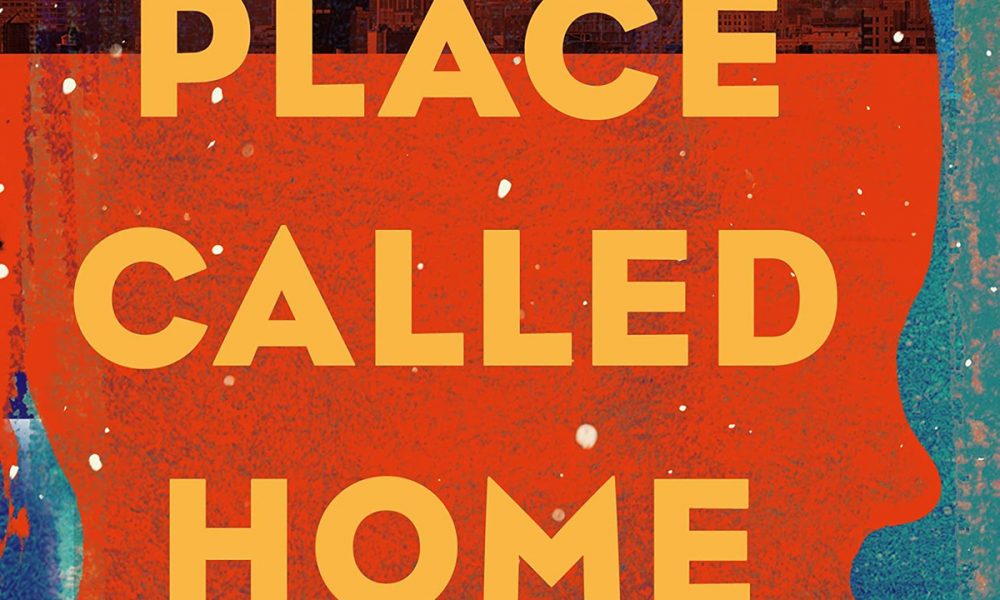
‘A Place Called Home: A Memoir’
By David Ambroz
c. 2022, Legacy Lit/Hachette
$30/384 pages
For David Ambroz, 42, author of the stunning new memoir “A Place Called Home,” one of his childhood recollections is of himself and his siblings walking with Mary, their mother, on a freezing Christmas morning in New York City.
Today, Ambroz, who is gay and a foster parent, is a poverty and child welfare expert and the head of Community Engagement (West) for Amazon.
But, on that morning, Ambroz remembers, when he was five, he and his seven-year-old sister Jessica and six-year-old brother Alex were freezing. Mary, their mother was severely mentally ill. They were homeless.
Ambroz draws you into his searing memoir with his first sentence. “I’m hungry,” he writes in the simple, frightened, perceptive voice of a malnourished, shivering little boy.
As it got dark and colder, Ambroz recalls, he walked with his family, wearing “clownishly large” sneakers “plucked from the trash.”
Five-year-old Ambroz remembers that the night before his family got lucky. They had dinner (mac and cheese) at a church “with a sermon on the side.”
“We heard the story of the three kings bringing gifts to the baby Jesus,” Ambroz writes.
But the next day they’re still homeless and hungry. Talk about no room at the inn.
Young Ambroz doesn’t know the word “death,” but he (literally) worries that he and his family will die. Frozen, hungry and invisible to uncaring passersby.
Ambroz’s mom, a nurse, is occasionally employed and able to house her family in dilapidated apartments. But she’s soon ensnared by her mental illness, unable to work. Then, her family is homeless again.
Until, he was 12, Ambroz and his siblings were abused and neglected by their mother.
Ambroz doesn’t know as a young boy that he’s gay. But, he can tell he’s different. Instead of playing street games with the other kids, Ambroz likes to play “doctor” with another boy in the neighborhood.
Mary tells him being gay is sinful and that you’ll die from AIDS if you’re queer.
His mother, having decided that he’s Jewish, makes Ambroz undergo a badly botched circumcision. At one point, she beats him so badly that he falls down a flight of stairs.
At 12, Ambroz reports this abuse to the authorities and he’s placed into the foster care system.
If you think this country’s foster care system is a safe haven for our nation’s 450,000 kids in foster care, Ambroz will swiftly cut through that misperception.
From ages 12 to 17, Ambroz is ricocheted through a series of abusive, homophobic foster placements.
One set of foster parents try to make him more “macho,” rent him out to work for free for their friends and withhold food from him. At another placement, a counselor watches and does nothing as other kids beat him while hurling gay slurs.
Thankfully, Ambroz meets Holly and Steve who become fabulous foster parents. Ambroz has been abused and hungry for so long he finds it hard to understand that he can eat whatever he wants at their home.
Through grit, hard work and his intelligence, Ambroz earned a bachelor’s degree from Vassar College, was an intern at the White House and graduated from the UCLA School of Law. Before obtaining his position at Amazon, he led Corporate Social Responsibility for Walt Disney Television.
But none of this came easily for him. Coming out was hard for many LGBTQ people in the 1990s. It was particularly difficult for Ambroz.
In college, Ambroz is deeply closeted. He’s ashamed to reveal anything about his past (growing up homeless and in foster care) and his sexuality.
At one point, he’s watching TV, along with other appalled students, as the news comes on about Matthew Shepard being murdered because he was gay. Ambroz can see that everyone is enraged and terrified by this hate crime. Yet, he’s too ashamed to reveal anything of his sexuality.
Over Christmas vacation, Ambroz decides it’s time to explore his sexuality.
Telling no one, Ambroz takes a train to Miami. There, he goes home with a man (who he meets on a bus) who rapes him.
“I run in no particular direction just away from this monster,” he recalls. “When I get back to my hotel room, I’m bleeding…I order food delivered but can’t eat any of it.”
“A Place Called Home” has the power of Martin Luther King, Jr.’s “Letter from Birmingham Jail” and Rachel Carson’s “Silent Spring.”
Ambroz’s writing becomes less powerful when he delves into the weeds of policy. But this is a minor quibble.
Ambroz is a superb storyteller. Unless you lack a heartbeat, you can’t read “A Place Called Home” without wanting to do something to change our foster care system.
The Blade may receive commissions from qualifying purchases made via this post.







